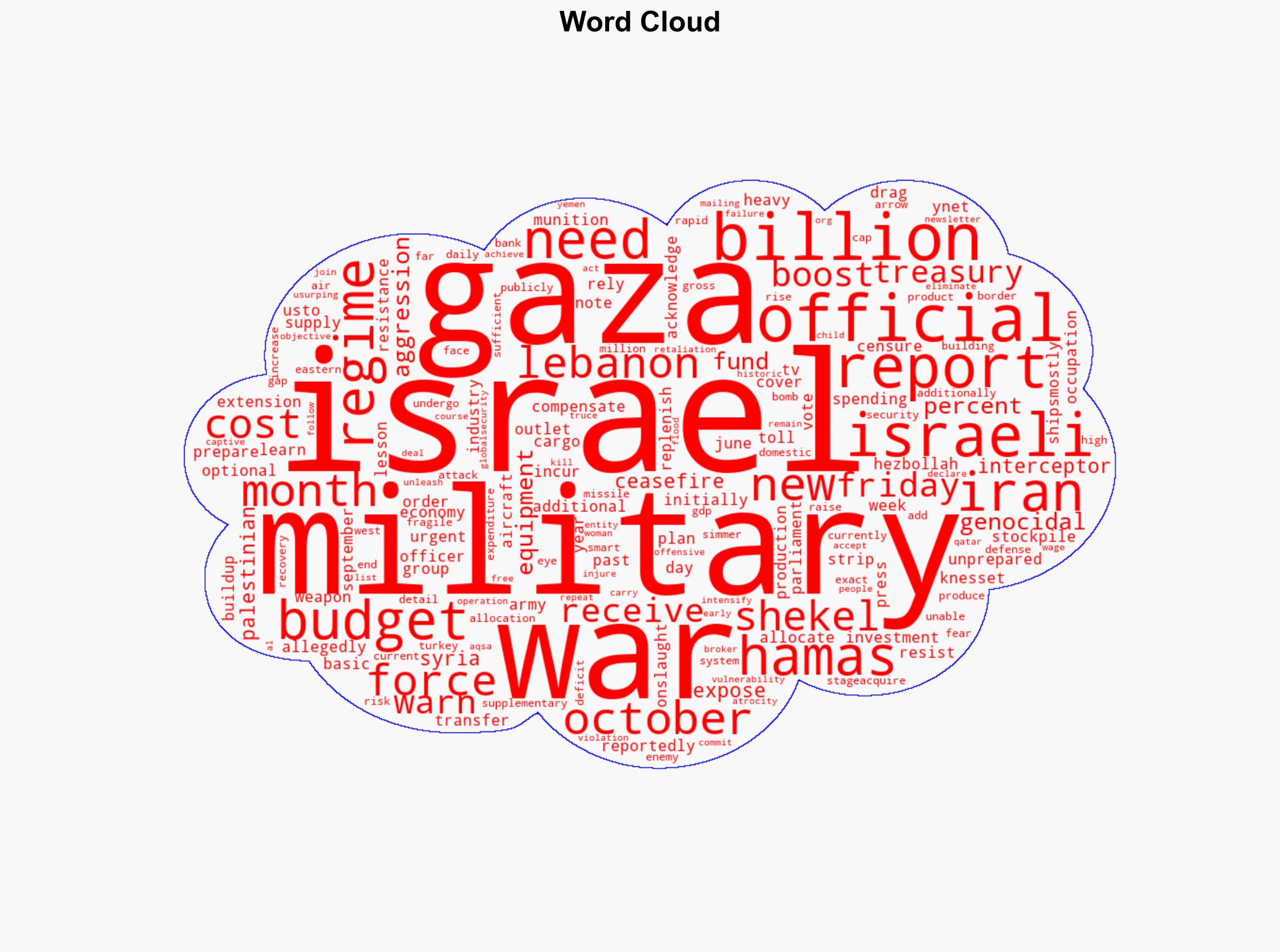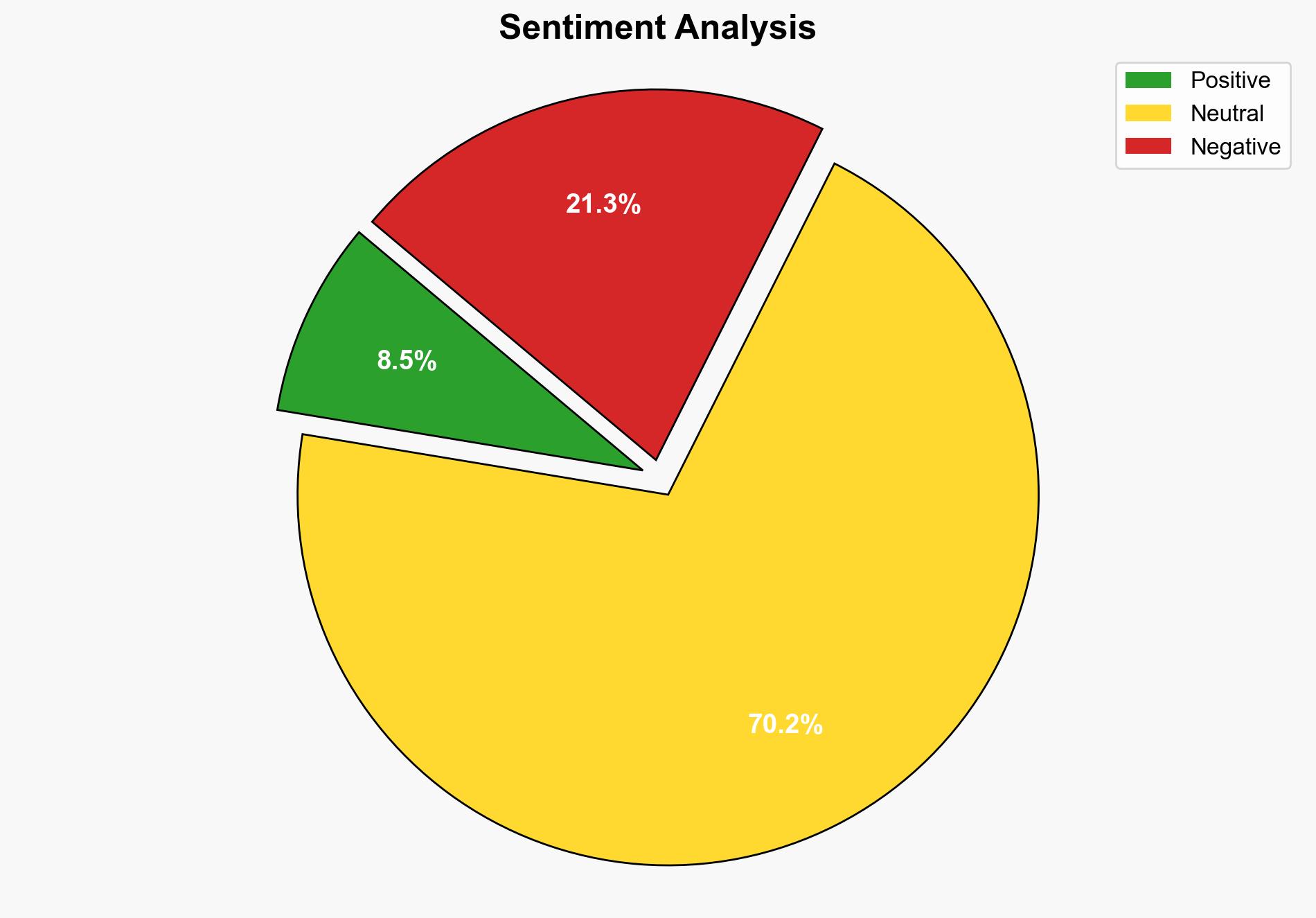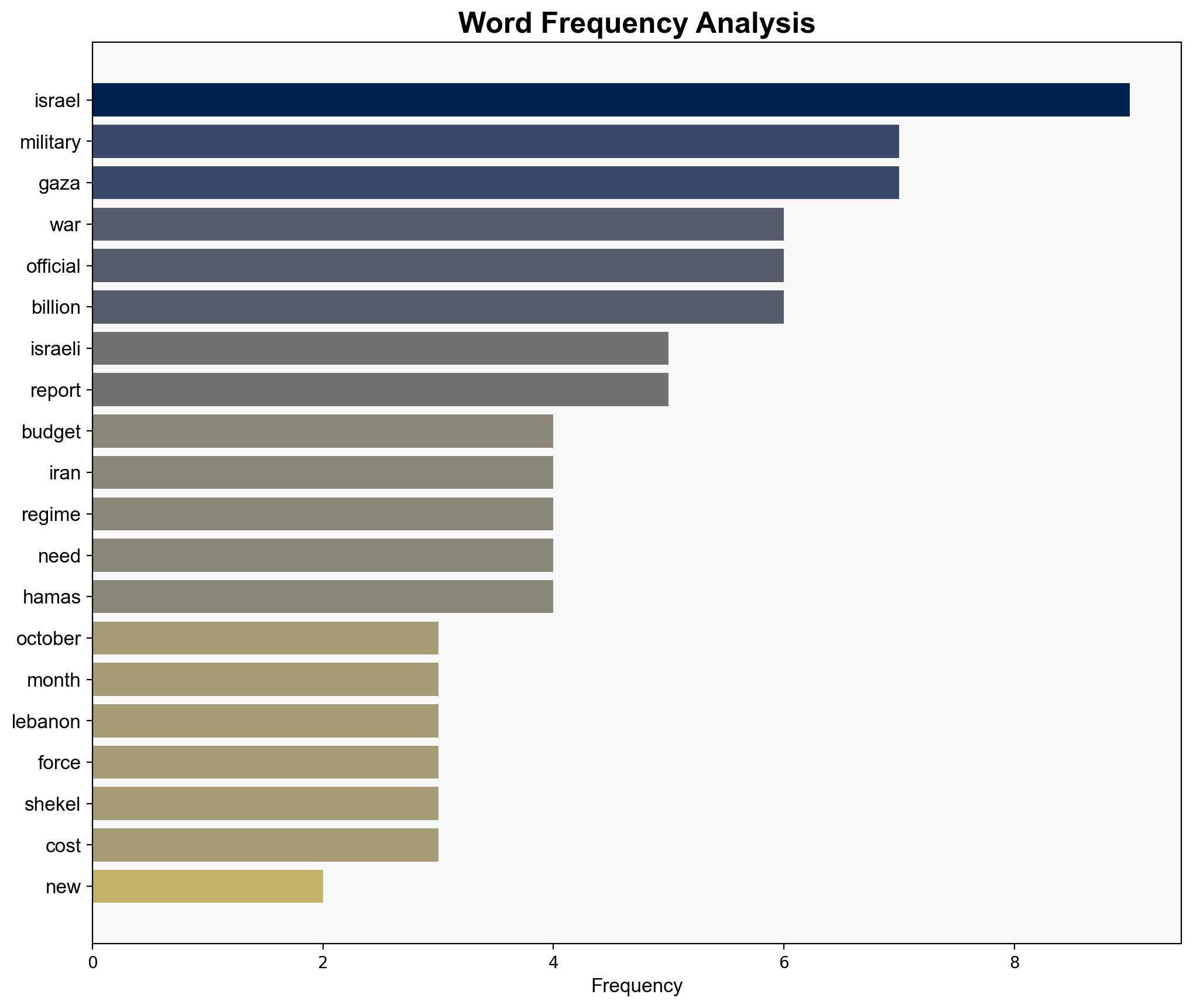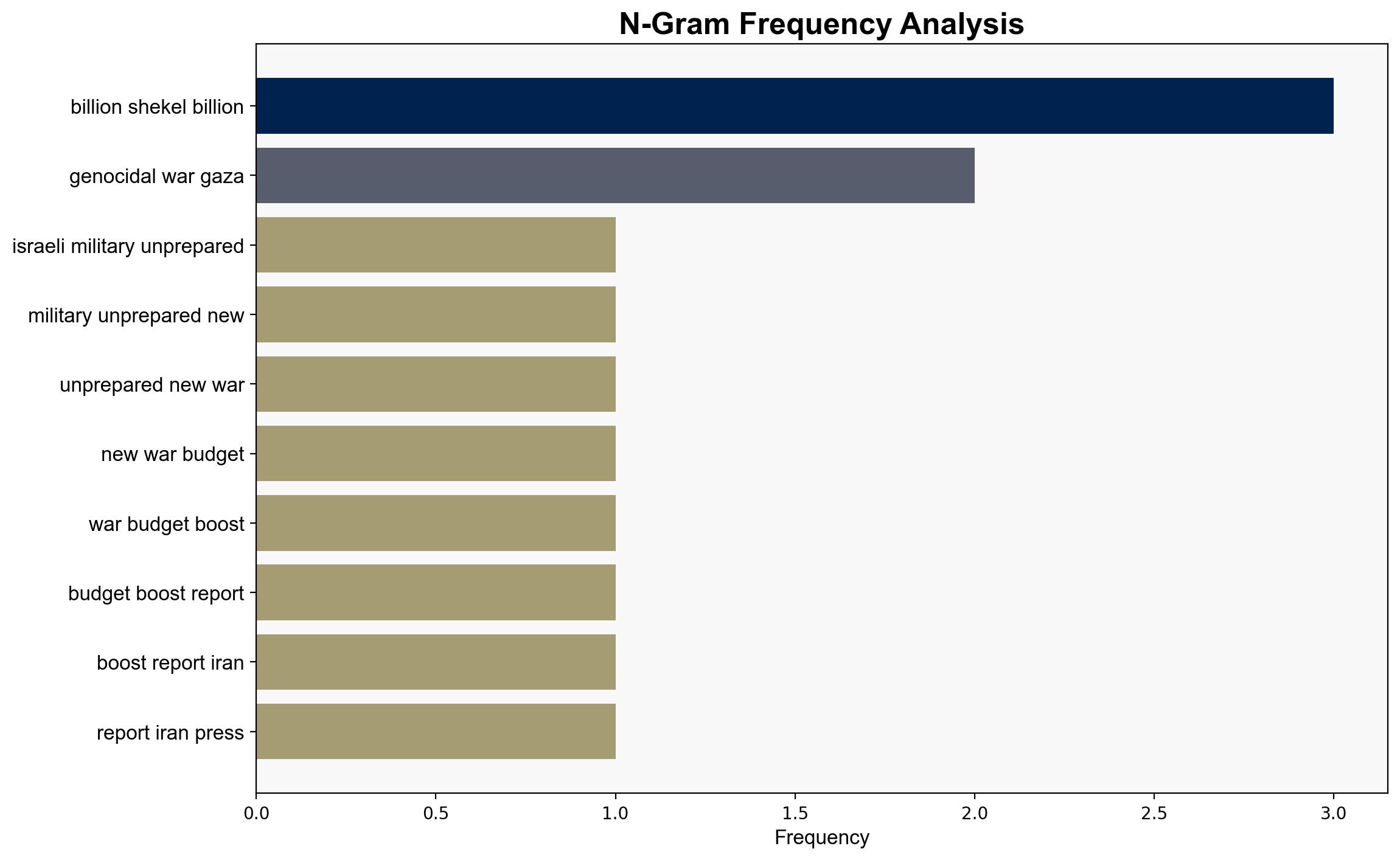Israeli military ‘unprepared’ for new wars without budget boost Report – Globalsecurity.org
Published on: 2025-10-25
Intelligence Report: Israeli military ‘unprepared’ for new wars without budget boost Report – Globalsecurity.org
1. BLUF (Bottom Line Up Front)
The Israeli military’s current state of preparedness is critically dependent on securing a budget increase. The most supported hypothesis is that the military’s public acknowledgment of unpreparedness is a strategic move to secure funding. Confidence level: Moderate. Recommended action: Monitor Israeli budgetary decisions and military procurement activities closely to assess shifts in regional military balance.
2. Competing Hypotheses
1. **Hypothesis A**: The Israeli military’s claims of unpreparedness are genuine, reflecting a critical need for increased funding to address real deficiencies in military capabilities.
2. **Hypothesis B**: The claims are strategically exaggerated to pressure the government and international allies into increasing military funding, leveraging perceived threats to national security.
Using ACH 2.0, Hypothesis B is better supported by the pattern of public statements and the timing of budgetary discussions. The consistent narrative of vulnerability could be a tactic to influence budgetary allocations.
3. Key Assumptions and Red Flags
– **Assumptions**: Hypothesis A assumes that the military’s operational readiness is genuinely compromised. Hypothesis B assumes a level of strategic communication aimed at influencing policy.
– **Red Flags**: The lack of detailed public disclosure on specific military needs raises questions about transparency. The timing of statements coinciding with budget discussions suggests potential manipulation.
– **Blind Spots**: Potential underestimation of internal military assessments and external geopolitical dynamics influencing military strategy.
4. Implications and Strategic Risks
– **Economic**: Increased military spending could strain Israel’s economy, impacting social programs and economic stability.
– **Geopolitical**: Perceptions of Israeli military weakness could embolden adversaries, increasing regional tensions.
– **Psychological**: Public acknowledgment of vulnerability might affect national morale and influence public opinion on military policies.
5. Recommendations and Outlook
- **Mitigation**: Encourage transparency in military budget allocations to ensure funds address genuine capability gaps.
- **Exploitation**: Leverage international partnerships to bolster military capabilities through joint exercises and technology sharing.
- **Projections**:
– **Best Case**: Increased funding leads to enhanced military readiness without significant economic impact.
– **Worst Case**: Failure to secure funding results in compromised defense capabilities, escalating regional threats.
– **Most Likely**: Partial funding increase addresses immediate needs but leaves long-term strategic gaps.
6. Key Individuals and Entities
– Israeli military officials (unnamed in the source)
– Israeli Treasury
– Israeli Parliament (Knesset)
– Hamas
– Hezbollah
7. Thematic Tags
national security threats, military funding, regional stability, strategic communication




